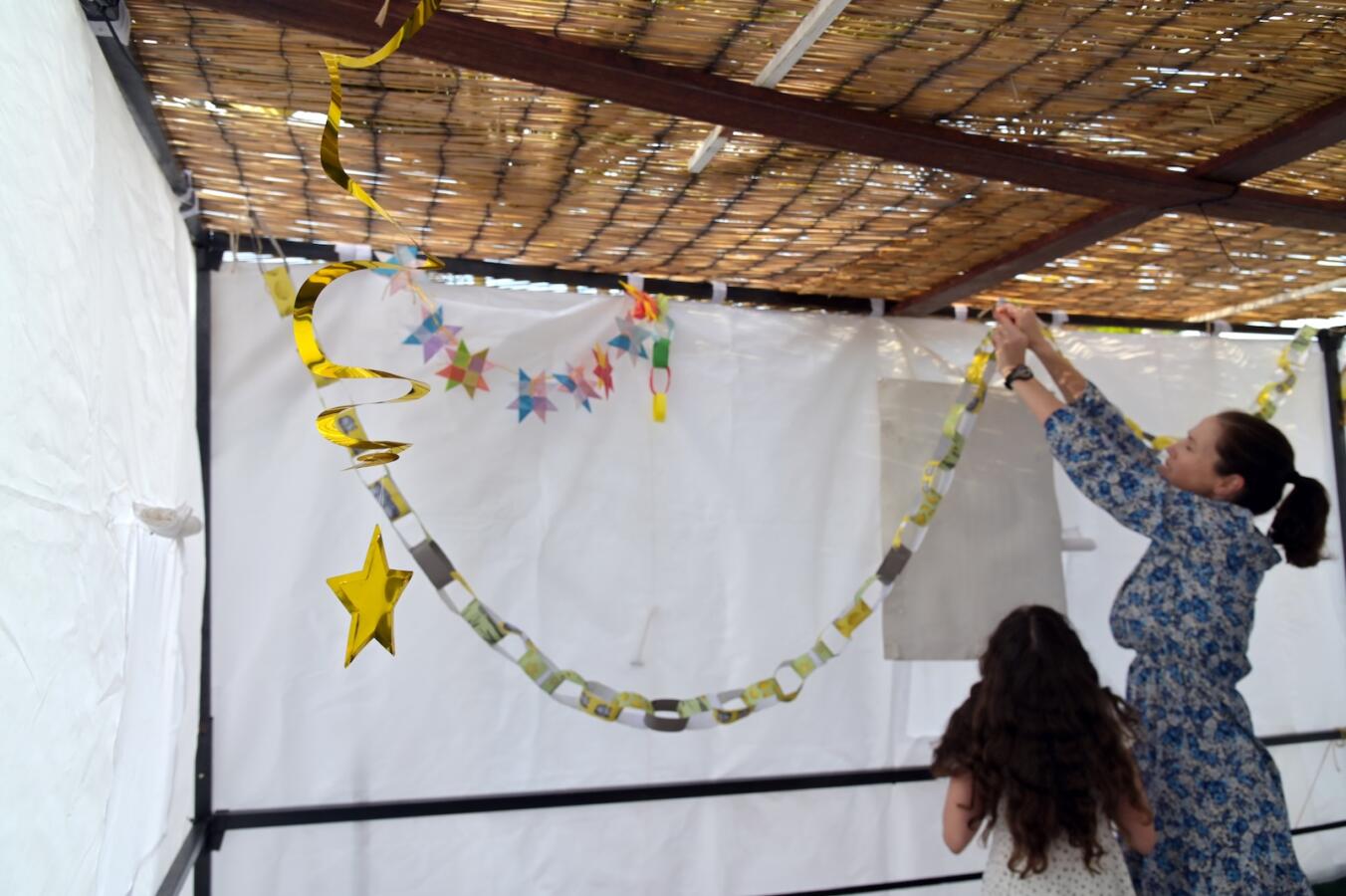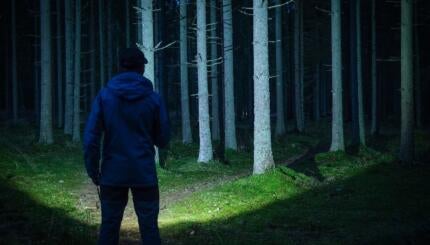An obscure piece of Jewish law that dictates the height of a sukkah has something timeless to teach us about communal responsibility.
A sukkah, the Talmud (Eruvin 3a) tells us, cannot be taller than 20 cubits (about 30 feet). Beyond that height, one can’t easily see the roof and know that it is a sukkah. Similarly, an alleyway that connects private courtyards to the public domain cannot have a crossbeam higher than 20 cubits.
The rabbis of the Talmud ask: What if part of the sukkah roof — or part of the alleyway’s crossbeam — is below 20 cubits, and part of it is above? What’s the legal status then?
Rabbah offers an answer: It’s acceptable for part of an alleyway’s crossbeam to be above 20 cubits and part below, but not for a sukkah. If even part of the sukkah’s roof exceeds that height, the sukkah is invalid.
With your help, My Jewish Learning can provide endless opportunities for learning, connection and discovery.
Why the difference?
One answer comes from Rava from Parzakya, who explains that a sukkah is typically built by an individual for herself. If her sukkah roof extends too high, no one else will be there to notice and tell her to fix it, meaning she might end up sitting in an unkosher sukkah. But an alleyway is used by many people; surely someone will see that the crossbeam is too high and remind someone to fix it.
But the Talmud pushes back and flips the logic. A sukkah, built by an individual, will surely be checked carefully by its builder. She’ll take special care to ensure it’s the correct height. An alleyway, on the other hand, belongs to everyone. And when something belongs to everyone, no one feels responsible. Each person assumes someone else will take care of the crossbeam.
The teaching concludes with a folk saying: As people say: “A shared pot (literally, ‘a pot belonging to partners’) is neither hot nor cold.”
When a task belongs to everyone, it may easily fall through the cracks. Shared space, if not tended with care, becomes neglected space.
This obscure rabbinic exchange reminds me of a teaching from one of my dearest mentors, Ken Kramarz, who directed Camp Tawonga in Northern California for many years. Ken used to teach camp staff that “shared space means shared responsibility.” He repeated it so often it became a kind of mantra. It remains one of the camp’s core values, taught to staff and campers to this day.
Ken would illustrate the point with the example of staff coffee mugs. After breakfast, the staff would linger over their coffee, chatting with each other and their campers, but they would often forget to clear away their mugs. The assumption was that someone else — the kitchen staff, the maintenance staff — would clean them up.
Ken would pick up a forgotten mug, hold it aloft, and say: “This dirty coffee cup belongs to you; it belongs to me; it belongs to all of us.” His message was clear: If each of us treats this place as our own, everything and everyone in it will be cared for.
This week brought the painful confluence of Sukkot, our most joyful festival, with the anniversary of October 7th, the most horrific Jewish tragedy of our time. It’s a combination that feels impossible to hold: joy and aching sorrow, celebration and paralyzing fear.
How can we possibly hold both? How can we put on our holiday best when we’re wearing sackcloth and ashes (biblical symbols of mourning)? What does it mean to dwell in a sukkah, a fragile structure that nevertheless reminds us of God’s sheltering presence, when the world feels so unsafe, so broken, so uncared for?
There’s no simple answer. But as I live each day through these dark times, I hold tightly to teachings like these — from the Talmud and from Ken. When we take personal responsibility for the spaces we share — our sukkot, our classrooms, synagogues, camps, neighborhoods, and even the world itself — we push back against despair. We move from paralysis to purpose. We can improve what’s there. We can create what’s not. We can hold each other as we bear sorrow and insist on joy.
It’s easy to assume that someone else will fix what’s broken, that someone else will clean it up, speak out and make it right. But the teaching of the shared pot (and the shared coffee mug) reminds us what can happen when everyone assumes that. Often, nothing gets done and nothing changes for the better.
When we take ownership — when we say, I notice this isn’t right. I’m going to talk to someone. I’m going to fix it — something shifts inside us. The more we treat our spaces and our communities as our own, the more we feel that they are our own: This is my home. My shul. My city. My world. And I want to take care of it.
As our rabbis also teach that it’s not our responsibility to complete the task, to fix every problem in the spaces we share, but it is our responsibility to do something.
This article is from the My Jewish Learning’s Shabbat newsletter Recharge on October 11, 2025. To sign up to receive Recharge each week in your inbox, click here.



